
As it looks to make up for lost time, Toyota is giving us a glimpse of its next-gen EV production line with modern technology like Giga casting, self-propelled assembly lines, and robots to transport finished vehicles.
Electric vehicle sales continue ramping at a record pace. By the end of 2023, global EV sales are expected to surpass 14.5 million units, according to data from CounterPoint Research.
Over 2.15 million EVs were sold in the second quarter alone. Legacy automakers and startups alike are fighting for a position in the new electric era. Tesla has maintained its lead, delivering 466,000 EVs in the second quarter, while China’s leading automaker, BYD, closed the gap with 352,000 passenger EV sales.
Meanwhile, of Toyota’s 4.15 million vehicles sold globally in the first half of the year, only a fraction (around 0.19%) were fully electric.
Several automakers have been caught flat-footed by the rapid transition. Many of them, including Toyota, Honda, and Nissan, have recently announced plans to accelerate their electrification strategies to turn things around.
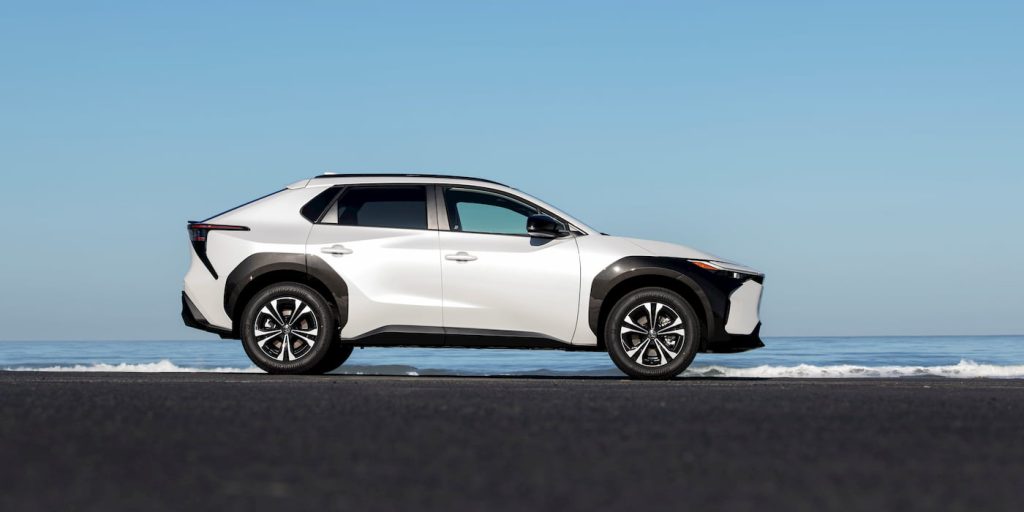
Toyota revealed several new technologies at a workshop in June, including several straight out of Tesla’s playbook.
The automaker gave us a sneak peek of what we can expect during a plant tour, showing off its next-gen EV production line for the first time.
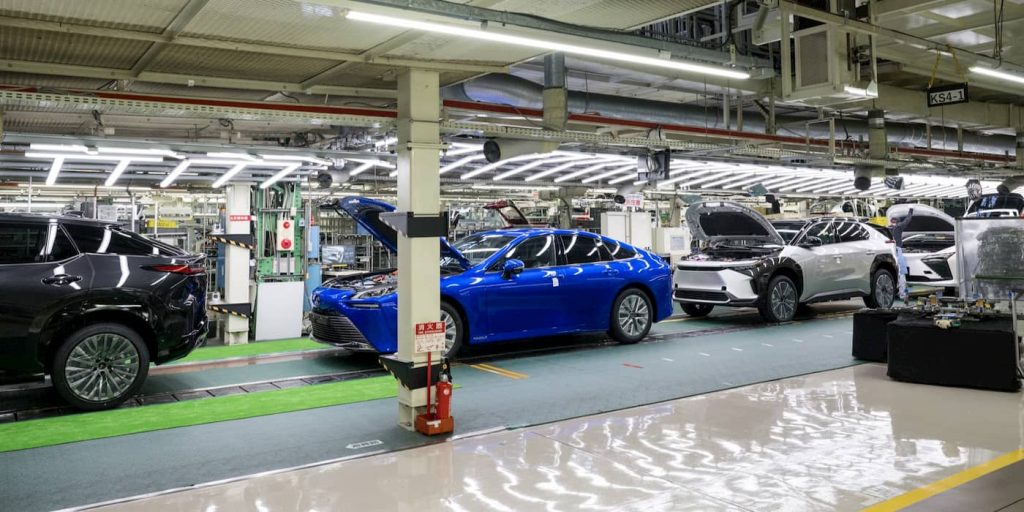
Toyota shows off new EV production line technology
One of the biggest highlights was its Giga casting technology, a process Tesla introduced at its Fremont factory in 2020.
Giga casting involves producing significantly larger aluminum parts to reduce complexity while saving critical resources. Tesla is said to have reduced costs by around 30% using the method.
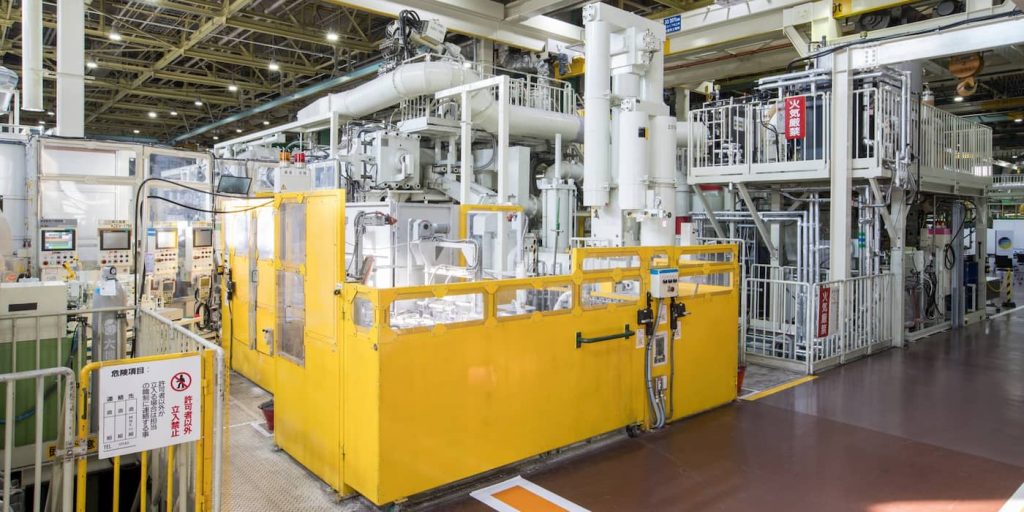
Toyota claims its “wealth of knowledge” about molds enabled it to develop “quick mold replacements.” By doing so, Toyota says it reduced the lead time for changing the mold to around 20 minutes compared to 24 hours.
Furthermore, the automaker will use proprietary analysis tech to improve the casting quality, reducing the number of defective parts.
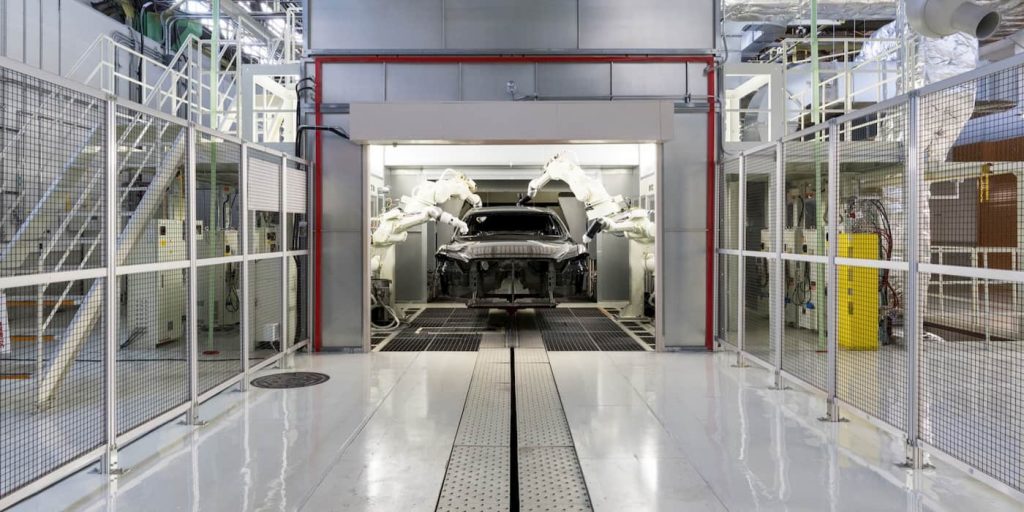
Toyota also emphasized its self-propelled EV production lines. The technology was developed using sensor technology from autonomous driving to enable “sizable travel at low speeds.”
Using self-propelled lines, Toyota can reduce the need for conveyor equipment, a major cost associated with manufacturing.
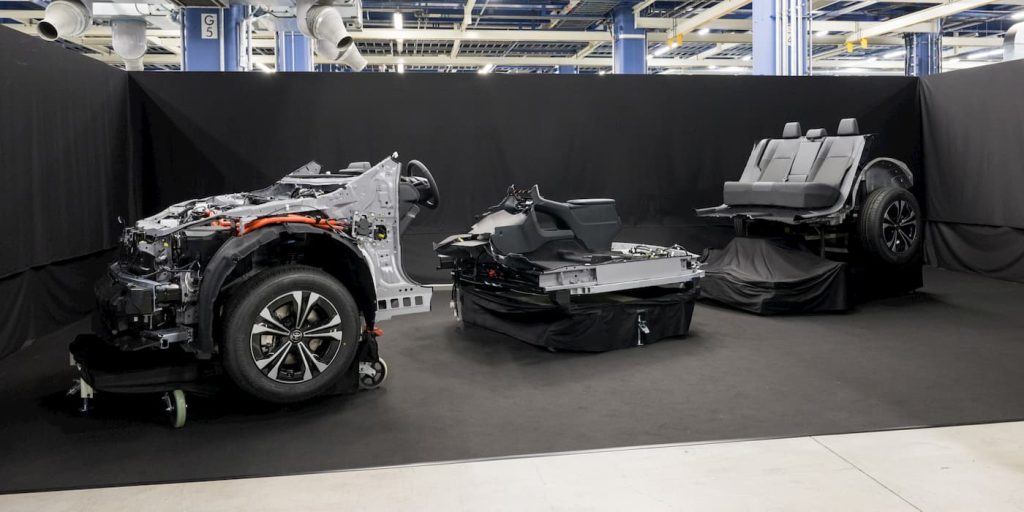
Toyota also introduced a three-part modular structure consisting of the vehicle’s front, center, and rear to enhance work efficiency and further reduce complexity.
Facing a labor shortage, the automaker showed off its Vehicle Logistics Robot (VLR), designed to improve vehicle transportation at the finished vehicle yard.
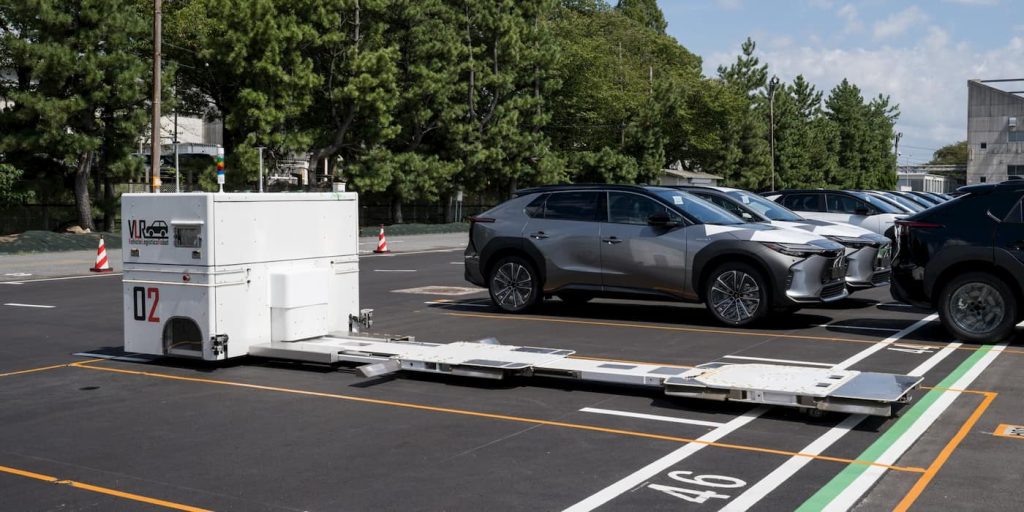
Toyota also revealed its EV battery roadmap last week, which includes new EVs launching in 2026 with nearly 500 miles (800 km) range.
Electrek’s Take
Toyota will have a long way to go in catching Tesla. The Japanese automaker is now looking to play catch-up after falling behind in the EV race early.
New technology, including next-gen EV production lines and advanced batteries, will help Toyota improve competitiveness in the future. But by 2026 or 2027, when many of these technologies are put to use, Tesla will likely already be onto the next innovation.
Tesla is on track to deliver 1.8 million EVs this year. Toyota aims to reach 1.6 million in another three years.
While the Japanese automaker wasted time on inferior technology, like hybrid and fuel cells, Tesla has been laser-focused on ramping up EV production while improving efficiency.
Author: Peter Johnson
Source: Electrek




Top comment by Flyover Philosopher
Liked by 15 people
Hybrid is not a waste of time. It was a step to get people used to the idea of driving big batteries. Should Toyota have started transitioning sooner? Yes. But the hybrids are not a waste.
View all comments